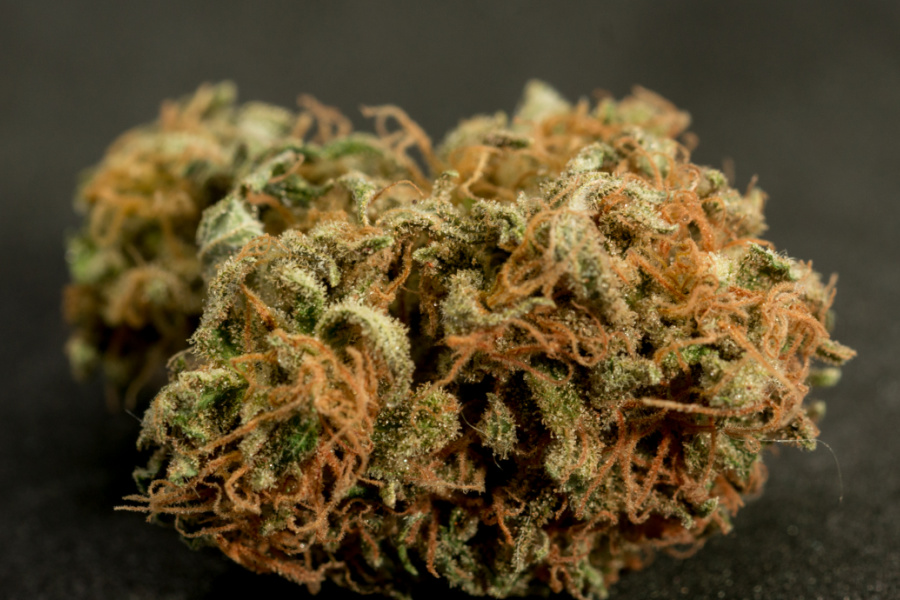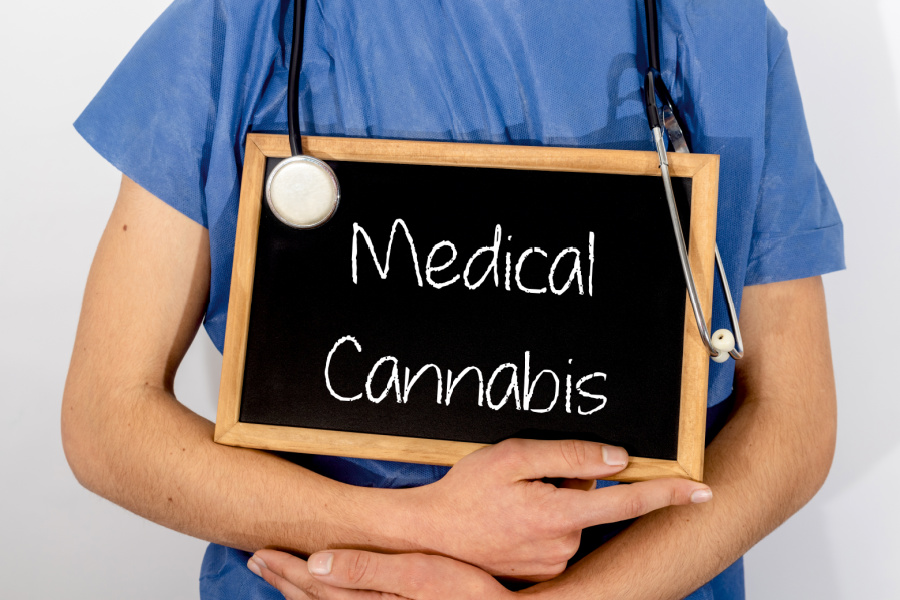Because cannabis (Cannabis sativa) is often associated with relaxation, some people wonder if it might help with ADHD symptoms like inattention or impulsivity.
Current research on cannabis for ADHD is limited and shows mixed results. While some report short-term relief, there are notable risks, including the potential for developing a substance use disorder. Combining cannabis with ADHD medications can also lead to unwanted side effects.
Here’s a closer look at what is known about cannabis and its effects on people with ADHD.
Cannabis and ADHD: What You Need to Know

Because cannabis (Cannabis sativa) is often linked to relaxation, many people wonder whether it could help manage ADHD symptoms such as difficulty focusing or impulsive behavior.
Research on cannabis for ADHD is limited and shows mixed results. While some individuals report short-term relief, there are significant risks, including the potential for developing a substance use disorder. Combining cannabis with ADHD medications may also produce unwanted side effects.
How Cannabis Might Affect ADHD Symptoms
Cannabis contains two main components that affect the brain differently:
- Tetrahydrocannabinol (THC): The psychoactive compound responsible for the “high” from cannabis. THC influences brain regions involved in focus, coordination, and reaction time.
- Cannabidiol (CBD): A non-psychoactive compound found in cannabis and hemp (plants containing 0.3% or less THC). CBD interacts with different brain areas and may counteract some of THC’s effects. It has also been shown to help regulate brain activity.
When cannabis is consumed, both THC and CBD are absorbed, producing combined effects that vary depending on the strain, dosage, and individual brain chemistry.
ADHD Overview
Attention Deficit Hyperactivity Disorder (ADHD) is a common neurodevelopmental condition affecting approximately 11% of school-aged children and 4.4% of adults. It is characterized by challenges with attention, impulsivity, and, in some cases, hyperactivity.
Understanding how cannabis interacts with ADHD is still an evolving area of research, and anyone considering its use should weigh potential benefits against the risks.
Cannabis and ADHD: What the Research Shows
Research on cannabis for ADHD is limited, partly because federal restrictions classify it as a Schedule 1 drug, making studies difficult. The existing evidence provides mixed results:
- A 2020 study of 112 adults with ADHD found that those using higher doses of cannabis components, such as CBD, relied less on other ADHD medications.
- 2023 reviews concluded that there isn’t enough evidence to recommend cannabis for managing ADHD symptoms. One review also noted structural brain differences in ADHD individuals who used cannabis, but overall benefits remain inconclusive.
- A 2022 study reported that some people with ADHD felt cannabis improved their symptoms and reduced side effects from medication. However, self-reported data can be biased and is not considered a strong measure of effectiveness.
Overall, more research is needed to determine whether cannabis has any reliable benefits for ADHD. Currently, most medical cannabis programs do not list ADHD as a qualifying condition.
Could Microdosing Cannabis Affect ADHD?
There isn’t enough research to know whether cannabis can help with ADHD, including microdosing—taking very small amounts to manage symptoms without feeling “high.” If you’re considering this approach, discuss it with your healthcare provider first.
Marijuana and Children
Although ADHD is frequently diagnosed in childhood, cannabis is generally not recommended for young people. Research shows that using marijuana during adolescence can alter brain structure and function, potentially leading to long-term behavioral and psychological issues.
Even in states with recreational cannabis laws, those under 21 cannot legally buy or use marijuana. Medical cannabis programs for children are very limited, and ADHD is not listed as a qualifying condition.
Using Cannabis With ADHD Medications
Research on how cannabis interacts with ADHD medications like Adderall (dextroamphetamine-amphetamine) and Ritalin (methylphenidate) is limited. One small 2015 study of adults without ADHD found that combining Ritalin with THC significantly increased heart rate compared to taking Ritalin alone.
If you take ADHD medications, it’s essential to be honest with your healthcare provider about any cannabis use.
Where cannabis is legal, products are better regulated, allowing you to know what’s in them and how much is safe to use—information you won’t get from unregulated sources. Your healthcare provider can help you weigh the potential benefits and risks of combining cannabis with ADHD medications.

Marijuana Effects by Strain
Many people believe that different cannabis strains produce different effects. Strains are simply varieties of the cannabis plant, and common marketing often highlights:
- Sativa: Thought to be energizing
- Indica: Thought to be calming and pain-relieving
In reality, the effects of cannabis are mainly determined by THC and CBD levels, which affect the brain and body differently. While pure Indica strains are often assumed to have higher CBD content for more calming effects, research shows these distinctions are not always reliable due to extensive crossbreeding.
CBD products, including oils, are marketed as providing the benefits of cannabis without the “high.” Evidence on their effectiveness for ADHD is limited and inconsistent. Some studies suggest short-term benefits, but long-term use may impact cognitive performance and daily functioning.
If you’re considering cannabis or CBD for ADHD, consult your healthcare provider to discuss potential benefits and risks.
When Cannabis Use Becomes a Substance Use Disorder
Around 30% of cannabis users may develop a substance use disorder, which happens when use starts to negatively impact daily life and functioning.
Research indicates that CBD alone, without THC, is not addictive. If you’re worried about dependency, opting for a CBD-only product rather than one containing both CBD and THC may reduce that risk.
Risks of Cannabis Use
Marijuana carries both short- and long-term risks, including:
- Respiratory issues from smoking
- Temporary mental effects such as paranoia or hallucinations
- Negative impacts on school, work, or career performance
- Cognitive challenges, including reduced executive functioning
Purchasing from an unregulated source adds extra risk, as products may contain unknown substances with their own health dangers.
When Cannabis Use Becomes a Problem
If cannabis is affecting your daily life, it may be a sign to seek help. Keep in mind that even in states with recreational cannabis programs, it remains illegal for anyone under 21 years old.
Medical Cannabis for ADHD in the UK: Prescription Guidelines and Access

Understanding Medical Cannabis for ADHD
Medical cannabis is legally available in the UK for certain conditions, including ADHD, but access is highly regulated and typically provided through private clinics rather than the NHS. It is considered when conventional treatments for ADHD have been ineffective or unsuitable. It may help alleviate symptoms such as hyperactivity, impulsivity, and inattention. However, its use for ADHD is not officially endorsed by NHS guidelines and remains an off-label treatment option.
Eligibility Criteria for a Prescription
To qualify for a medical cannabis prescription for ADHD in the UK, patients generally need to meet the following criteria:
- Confirmed ADHD Diagnosis: A formal diagnosis of ADHD from a qualified healthcare professional.
- Ineffectiveness of Conventional Treatments: Demonstrated lack of efficacy or intolerable side effects from at least two standard ADHD medications.
- Absence of Psychotic Disorders: No history of schizophrenia or psychosis, as cannabis use may exacerbate these conditions.
- Provision of Medical Records: Submission of comprehensive medical records, including details of previous treatments and responses.
- Private Clinic Consultation: Engagement with a registered private clinic, as NHS prescriptions for ADHD-related cannabis use are exceedingly rare.
Accessing Treatment Through Private Clinics
Several private clinics in the UK offer medical cannabis prescriptions for ADHD, including:
- Releaf: Provides online consultations and prescriptions for eligible patients (releaf.co.uk)
- Mamedica: Specializes in cannabis-based treatments for various conditions, including ADHD (mamedica.co.uk)
- Zerenia Clinic: Offers personalized consultations and tailored prescriptions for ADHD patients (zereniaclinic.co.uk)
These clinics typically offer consultations without the need for a GP referral, but they require detailed medical history and documentation of previous treatments.
Important Considerations
- Not a First-Line Treatment: Medical cannabis is not considered a primary treatment for ADHD and is usually explored after other options have been exhausted.
- Potential Side Effects: Cannabis use may lead to side effects such as dizziness, fatigue, or mood changes.
- Legal Status: Possession of cannabis without a prescription is illegal in the UK.
- Driving and Operating Machinery: Cannabis can impair cognitive and motor functions; avoid driving or operating heavy machinery while under its influence.
Final Advice
If you are considering medical cannabis as a treatment for ADHD:
- Consult with a Specialist: Discuss your symptoms and treatment history with a healthcare professional experienced in cannabis-based therapies.
- Explore All Options: Ensure that all conventional treatments have been thoroughly explored and documented.
- Stay Informed: Keep abreast of the latest research and legal developments regarding medical cannabis use for ADHD.
Medical cannabis is a personalized treatment and may not be suitable for everyone. A thorough evaluation by a qualified specialist is essential to determine its appropriateness for your specific situation.





.svg)

.svg)


